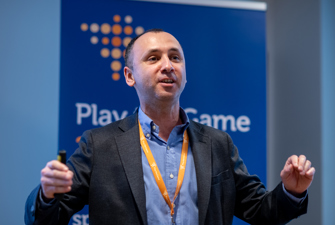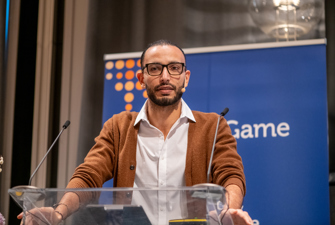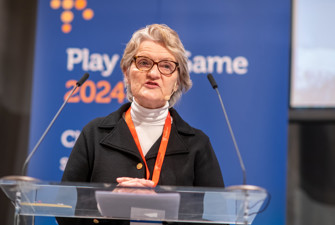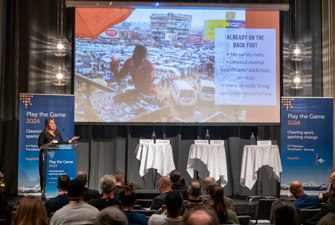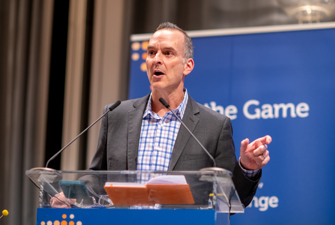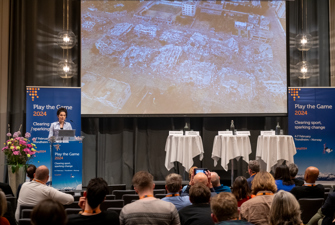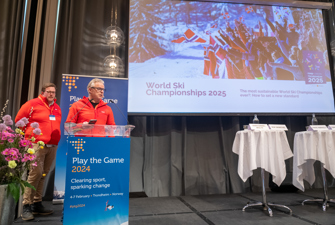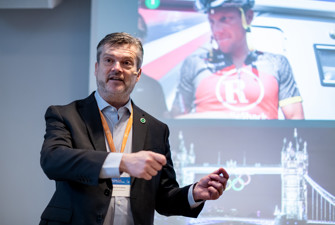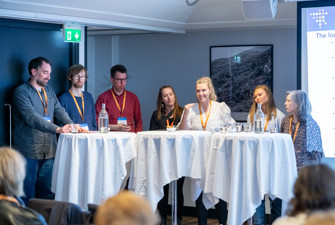Session on Qatar 2022 raises tense debate about bias and bigotry in media reporting
The first plenary session on Monday morning — aptly titled 'Biased, bigoted, boorish? The global debate on Qatar 2022' — stirred a tense discussion about the role of journalism in propagating and disseminating racist stereotypes about the Gulf state ahead of the 2022 World Cup.
Nick Harris, the editor of Sports Intelligence, opened up the session with a speech that delved into Qatar’s misdirection in the lead-up to the World Cup, including the corrupt tactics the Gulf state used to secure the prestigious event. He also listed various examples of the promises that Qatar made but failed to keep in the aftermath of the tournament.
Harris also noted how Qatar’s obfuscation tactics helped lay a blueprint for other autocracies to follow suit.
“Qatar wanted to control the narrative and Saudi wants to do the same,” Harris concluded. “We can see the future, we just need to look at the past.”
Craig LaMay, a professor at Northwestern University in Qatar, added to the discussion by stressing that, while Qatar is the most progressive of all Gulf states when it comes to its media laws, it is very difficult to confirm Qatar’s claims of migrant labour reforms because of the lack of transparency.
Craig noted that journalists who attempted to report on the ground in Qatar had been arrested and that he himself had been detained twice for news gathering.
Lack of respect or obfuscation?
The session took an interesting turn when Lars Haue-Pedersen, managing director of sports at public relations firm Burson Cohn & Wolfe (BCW), took to the stage with a plea directed at the international media to take a more “balanced” approach to reporting on Qatar.
BCW played a role in crafting PR strategies for Qatar before the tournament, and after presenting a question raised by a Qatari participant in a focus group — “why do [the West] dislike us?” — Haue-Pedersen asserted that Western coverage of Qatar was influenced by "post-colonial arrogance" and sprinkled with a “touch of racism.”
“It is not respectful when Danish media call Qatar the 'desert state.' Yes, there is a lot of desert in Qatar. But no Qataris call Denmark a farmer state. Or Norway a fisherman country. They call it Norway,” he argued.
Haue-Pedersen's statements caused a stir among his fellow panellists, as well as the audience gathered in the conference room, especially as he went on to claim that, even though the West often preached inclusivity, it actually used its dedication to human rights as a means to show superiority over other countries.
As the speakers settled into the panel debate following their individual speeches, audience members took turns voicing their displeasure with Lars’ insinuations while outlining the various ways he misdirected people during his speech.
For instance, Steve Cockburn, the head of economic and social justice at Amnesty International who helped shape Amnesty’s campaigning on Qatar, reflected on the importance of finding the necessary nuance and balance in reporting on authoritarian regimes “but without the obfuscation that I just heard” — a reference to Lars’ lack of willingness to address Qatar’s well-documented human rights issues.
“There were enormous, very serious and very dangerous conditions for migrant workers in Qatar that we and many other organisations documented over many years that simply cannot be dismissed in that way,” Cockburn said.
Haue-Pedersen's remarks also drew criticism from journalists, with some directly accusing him of dishonesty in his dismissal of Western reporting on exploited migrant workers.
Conversely, some argued that Western journalists should introspect and comprehend the reasons behind the accusations of bias being levelled against them.
“It is striking me here how people are more worried about being labelled racist than actually being anti-racist in their own practices,” Shireen Ahmed, a Muslim journalist based in Canada, said during the Q&A.
“If that is a concern for you, look at your own newsroom. Who are you surrounded by?”
Ahmed went on to point out that there is a “growing attitude of McCarthyism” and silencing of radicalised journalists throughout the Western world, especially over the ongoing war in Gaza.
“If you’re concerned about being labelled racist or Islamophobic, look around you,” Ahmed continued. “You have to earn the respect of people."
